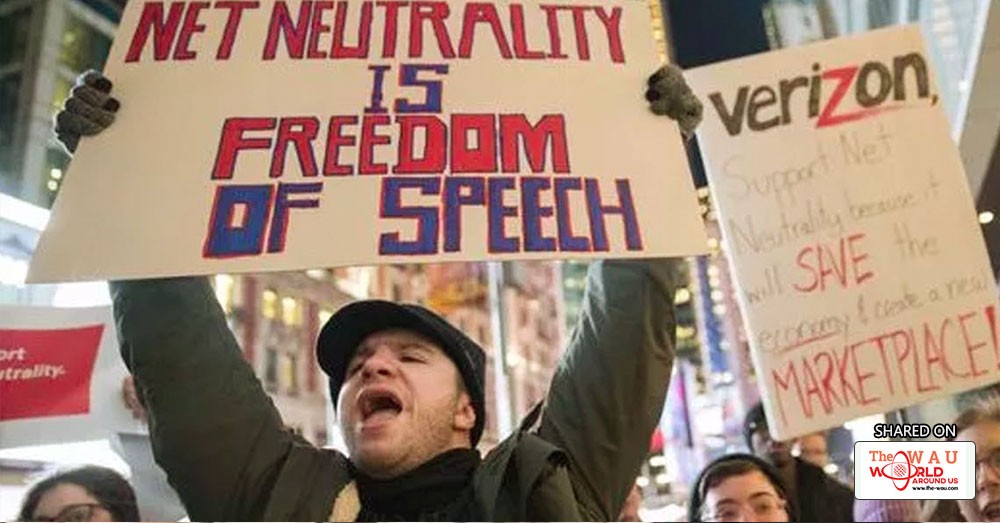Net Neutrality is dead.
In a vote of 3-2, the Federal Communications Commission voted to remove key provisions that prevented internet service providers from treating certain internet traffic differently from others. The vote removes key provisions put in place under the Obama administration that ensured internet service providers could not block, throttle, or otherwise interfere with customer access to the internet in any way.
By removing the 2015 net neutrality rules, ISPs in the United States can now do whatever they want with your data, including but not limited to: slow certain sites down, make certain sites go faster, or charge a fee for access to certain content.
The only rule that exists now is ISPs have to tell you exactly what they plan to do.
“The internet wasn’t broken in 2015. We were not living in some digital dystopia,” FCC chairman Ajit Pai said after the vote. “The main problem consumers have with the internet is not and has never been that their internet provider is blocking access to content. It’s been that they don’t have access at all.”

That may be true now, but it is a blatant falsehood to imply that companies were not trying to block or throttle content prior to 2015.
In 2012, AT&T tried to throttle Apple’s FaceTime video messaging service, arguing that it used too much bandwidth on their network. The company wouldn’t allow the app to function at optimal resolution unless users paid for a “Mobile Share” data plan on top of their existing plan, arguing that the move did not violate net neutrality in implementation. AT&T eventually backed down due to public pressure and Apple’s impending lawsuit.
There are multiple other examples of ISPs trying to circumvent net neutrality in the past, and now they can legally do all of it and so much worse. Internet providers that are also content producers (like Comcast and NBCUniversal) can slow down competitor’s data (like YouTube or Netflix) while speeding up their own. Of course, you could get around that by paying a little extra on your data plan.
It needn’t stop there. Providers could say that certain websites and services won’t go towards your data cap, but other sites and services will. Or they could block access to certain services entirely unless you pay an extra fee.
Imagine a world where you can’t use Facebook or Twitter without paying extra. Or play your favorite online games without paying a daily toll. Imagine a world where you can’t access the news – or certain news is deliberately blocked – just because your ISP doesn’t like it.
Welcome to the digital dystopia. Enjoy your stay.
Share This Post












